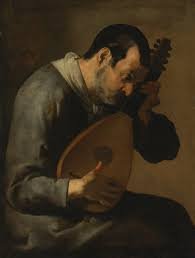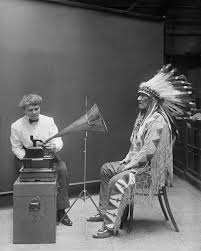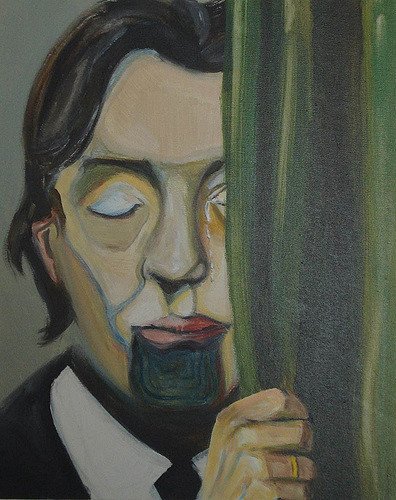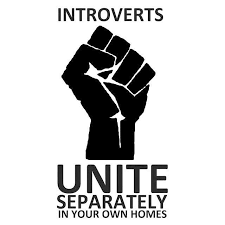
Resistance Literature: A New Wave of Intellectual Engagement
So I'm walking through a bookstore in downtown Santa Fe, New Mexico and I'm reading blurbs. I'm not going to blast any artists. That's not what I'm about. We all come from a different set of experiences. But why are mainstream book publisher publishing the same narrative over and over and over and over? These blurbs seeming lay out different storylines, but when you look at the macro's macro you start to see a pattern. Maybe it's because I'm Native. But I want to see resistance. Marches and protests are great and if they show up in literature then fantastic, but what I'm proposing is literature that deconstructs the system. I'm talking about a symbolic code that will inform others on how to fight back, on what has worked for them in rearranging the parts in the system. For me, resistance isn't about destruction, but instead it's more about moving parts around.
Maybe it's because I'm Native. But I want to see resistance. Marches and protests are great and if they show up in literature then fantastic, but what I'm proposing is literature that deconstructs the system. I'm talking about a symbolic code that will inform others on how to fight back, on what has worked for them in rearranging the parts in the system. For me, resistance isn't about destruction, but instead it's more about moving parts around. The novel I'm working on now, Uncle Called Him Spider, shows a group of Natives (Kiowa, Cherokee, and Muskogee-Creek) battling with an overbearing boss. It's not done in a dismissive comedy routine to release your pressure valve, like those popular movies and television shows. I'm not trying to make you a complacent slave. I'm trying to show you the underground railroad. In the novel, you watch as Natives struggle with each other and with values imposed on them by this boss. You get to see exactly how they resist and you get to see how they discipline each other to teach resistance. The main character, Dean, takes something from each of his coworkers and empowers himself to stand up against this boss.How does it all end? Does he redeem himself and his coworkers? Well, once the novel has completed it's final stage of revision I'll be able to get it out to you. But for now know this: Resistance literature is the next wave of intellectual entertainment.How many artists will help me take up this cause? If you're interested in engaging in a diverse didactic calling which shows how fighting back works for you, then click on the social media icons below. Let's reach as many artists as we can.
The novel I'm working on now, Uncle Called Him Spider, shows a group of Natives (Kiowa, Cherokee, and Muskogee-Creek) battling with an overbearing boss. It's not done in a dismissive comedy routine to release your pressure valve, like those popular movies and television shows. I'm not trying to make you a complacent slave. I'm trying to show you the underground railroad. In the novel, you watch as Natives struggle with each other and with values imposed on them by this boss. You get to see exactly how they resist and you get to see how they discipline each other to teach resistance. The main character, Dean, takes something from each of his coworkers and empowers himself to stand up against this boss.How does it all end? Does he redeem himself and his coworkers? Well, once the novel has completed it's final stage of revision I'll be able to get it out to you. But for now know this: Resistance literature is the next wave of intellectual entertainment.How many artists will help me take up this cause? If you're interested in engaging in a diverse didactic calling which shows how fighting back works for you, then click on the social media icons below. Let's reach as many artists as we can.
Support a Native owned Etsy shop, Allies United, where I offer unique merch for allies of social justice movements, like MMIW, Native Lives Matter and Black Lives Matter. Take a look inside my Etsy shop here: etsy.com/shop/AlliesUnited.
(Works Cited: Images borrowed from Wikimedia Commons)
Voice Echoes in Mimetic Hearing
How to hear? Not to listen, like saying "You need to pay attention," but instead how we create consistency in our voice as artists. How do we hear voice? How do we recognize what is uniquely our own? Is one obstacle. Then the next. How do we reproduce it again and again? It might seem easy on the surface. Once you do something, just do that same thing again. Then again. Then again. And on and on. But tell that to an artist. If you've ever shot a three pointer on the basketball court, you know it's muscle memory that allows the odds of hitting those threes over and over. When you're first starting to understand voice in your art you have moments when you hit nothing but net. Then you have moments when you air ball shot after shot, and you start to question, "How did I make those shots before?"As a creative writer, I've written stories with a certain voice and this voice was born out of my Kiowa community, which is interlaced with the Comanche community (many of my relatives are half Comanche). In my short story, Our Dance, the narrator is from Lawton, Oklahoma and he recounts when he received a per capita check from the Kiowa tribe. The story reflects my and other family member's experiences when we received money at the age of 18. The story wrote itself. The voice came so quickly and naturally it was an out of body experience to write it. Some spirit from within took me over and used me to write the story--was how it felt.Then I wrote other stories trying to capture similarly the Cherokee voices in my Cherokee community of Tahlequah, Oklahoma. My reason? I wanted to show people the beauty in our differences. How unique each tribe is. Often we Native Americans are lumped into the same group, and we do share a common experience and this history undoubtedly binds us together for many generations to come, and at the same time people from the outside often adhere to ubiquity and miss our essence as individual tribes. This is a great modality for a writer, but it spelled doom for my ability to capture a singularly unique voice as an artist.What was the consequence?I went into a tailspin for several years. Mimesis often locks me in circles that produce interesting pieces of literature, but it can also bind me into a cycle (or obsession) with topics that are distracting, like battling ubiquity.
It might seem easy on the surface. Once you do something, just do that same thing again. Then again. Then again. And on and on. But tell that to an artist. If you've ever shot a three pointer on the basketball court, you know it's muscle memory that allows the odds of hitting those threes over and over. When you're first starting to understand voice in your art you have moments when you hit nothing but net. Then you have moments when you air ball shot after shot, and you start to question, "How did I make those shots before?"As a creative writer, I've written stories with a certain voice and this voice was born out of my Kiowa community, which is interlaced with the Comanche community (many of my relatives are half Comanche). In my short story, Our Dance, the narrator is from Lawton, Oklahoma and he recounts when he received a per capita check from the Kiowa tribe. The story reflects my and other family member's experiences when we received money at the age of 18. The story wrote itself. The voice came so quickly and naturally it was an out of body experience to write it. Some spirit from within took me over and used me to write the story--was how it felt.Then I wrote other stories trying to capture similarly the Cherokee voices in my Cherokee community of Tahlequah, Oklahoma. My reason? I wanted to show people the beauty in our differences. How unique each tribe is. Often we Native Americans are lumped into the same group, and we do share a common experience and this history undoubtedly binds us together for many generations to come, and at the same time people from the outside often adhere to ubiquity and miss our essence as individual tribes. This is a great modality for a writer, but it spelled doom for my ability to capture a singularly unique voice as an artist.What was the consequence?I went into a tailspin for several years. Mimesis often locks me in circles that produce interesting pieces of literature, but it can also bind me into a cycle (or obsession) with topics that are distracting, like battling ubiquity. Ultimately, I learned I can address this issue of homogeneity in other ways. I've come full circle recently and am starting to look toward the voice that came out of my Kiowa community as the voice I'm going to use in my literature. I'm revising my first novel and yesterday I came to chapter 13 and somehow my Kiowa "voice" started to manifest. I suddenly could "hear" the tone and pitch of my community laced in the words. The voice is a little different than when I wrote Our Dance, but I'm excited to see how it has grown. My advice for other writers: hear your community, hear your family, pause and hear. Don't listen, because you'll only focus on the words. Hear the vowels rise or drop. Hear the absence of consonants. Hear the subtle pauses.Then when you hear the voice you're going to use in your art: capture it quickly. Produce something you can return to time and again. Every time you reread that story, you look at that painting, or you sing that song take it and transfer it into the next project and then the next. Always go back to the original voice in the same way you always go back home. Even if it's just to remember where you came from.
Ultimately, I learned I can address this issue of homogeneity in other ways. I've come full circle recently and am starting to look toward the voice that came out of my Kiowa community as the voice I'm going to use in my literature. I'm revising my first novel and yesterday I came to chapter 13 and somehow my Kiowa "voice" started to manifest. I suddenly could "hear" the tone and pitch of my community laced in the words. The voice is a little different than when I wrote Our Dance, but I'm excited to see how it has grown. My advice for other writers: hear your community, hear your family, pause and hear. Don't listen, because you'll only focus on the words. Hear the vowels rise or drop. Hear the absence of consonants. Hear the subtle pauses.Then when you hear the voice you're going to use in your art: capture it quickly. Produce something you can return to time and again. Every time you reread that story, you look at that painting, or you sing that song take it and transfer it into the next project and then the next. Always go back to the original voice in the same way you always go back home. Even if it's just to remember where you came from.
Support a Native owned Etsy shop, Allies United, where I offer unique merch for allies of social justice movements, like MMIW, Native Lives Matter and Black Lives Matter. Take a look inside my Etsy shop here: etsy.com/shop/AlliesUnited.
(Cited: Images were borrowed from Wikipedia and Wikimedia Common).
Rewind Oscar's Tape: The Making of an Introverted In'din Nerd
That's how far back we're about to go. I'm going to use a simile only a certain generation will understand. Remember tapes? It kind of sounds odd to say now. Tapes. Sounds like a prehistoric infection. If my kids overheard me ask someone if they "had tapes" when they were a teenager, they would think it was an STD. Like an old school slang term for gonorrhea. But I digress, as usual. I'm about to rewind my tape and take young and old back to my days as an introverted neophyte surviving on southern sweet tea and tapes.
 You could say it was exacerbated by the abuse from my father, but I had a hard time socializing. The last grade I completed was the sixth grade. I dropped out of school at the age of thirteen years old. How does a thirteen year old go missing from the public school system without notice? You might ask. Well there wasn't much expectation for us Natives to do anything other than fail in life so when I stopped going to school, my mother withdrew me, and the school system never asked any questions.
You could say it was exacerbated by the abuse from my father, but I had a hard time socializing. The last grade I completed was the sixth grade. I dropped out of school at the age of thirteen years old. How does a thirteen year old go missing from the public school system without notice? You might ask. Well there wasn't much expectation for us Natives to do anything other than fail in life so when I stopped going to school, my mother withdrew me, and the school system never asked any questions.
I'd spend months without interacting with anyone other than my mother and the two grandmothers I lived with. I spent the majority of my time playing video games like Rygar, Contra, and Zelda on my Nintendo. When I wasn't playing video games I was reading books (Stephen King and fantasy novels like Dragonlance) or I was listening to gangster rape or writing bizarre stories of great imagination. In other words, I was anywhere but here on planet Earth.
 I'd come out of my introverted trance of escape when I'd go visit my cousin, Quincy, in Lawton, Oklahoma. My family out there was very active in Kiowa and Comanche cultural activities so I'd get a good dose of culture and community. My aunt, Linda, is like a mother to me and her husband, Uncle Butch, was a father figure when I didn't have one.
I'd come out of my introverted trance of escape when I'd go visit my cousin, Quincy, in Lawton, Oklahoma. My family out there was very active in Kiowa and Comanche cultural activities so I'd get a good dose of culture and community. My aunt, Linda, is like a mother to me and her husband, Uncle Butch, was a father figure when I didn't have one.
Similarly, I had a close friend in Tahlequah, Brandon, who would bring me out of isolation on the occasional weekends. He was extroverted and knew a lot of people in Tahlequah. Through him I could pretend to be normal for short time periods. His mother, also Linda, was another mother figure in my life. Brandon's family took me under their wing and I had time periods where I did family type activities with them.
I was raised by a single mother who was undiagnosed with Asperger's syndrome. She is very intelligent and highly calculated, but she does not have the social skills you would want a mother to have. Her reasoning is more logical and practical. She can get overstimulated by social environments so she wasn't trying to take any of her children to community or cultural functions. If it wasn't for the above mentioned individuals then I would have never had opportunities to socialize.
I fall under the umbrella of Asperger's syndrome, but I'm not as far on the spectrum to full Asperger's as my mother. I can understand (now) how my mother thinks and looks at the world. I don't criticize her because I understand she is biologically constructed to be the way she is. In fact, I have my level of intelligence and high inclination toward creativity because of my mother's genetics. A lot of people say I look like her and act like her. I write fiction. My mother does traditional beadwork. I play the guitar. My mother hand makes traditional quilts. While we have chosen different skills, we are the same in intelligence and creativity. Which are both symptoms of Asperger's.
 Certainly my introvertedness can be contributed to a number of aspects in my childhood, but I've had a lot of jobs in my adult life where I was taught to be extroverted. I've taught English classes at the University of Oklahoma, and I've facilitated experiential education programs with a hundred participants. I don't shy away from attention. In fact, I enjoy attention, but I'm not competing to get it.
Certainly my introvertedness can be contributed to a number of aspects in my childhood, but I've had a lot of jobs in my adult life where I was taught to be extroverted. I've taught English classes at the University of Oklahoma, and I've facilitated experiential education programs with a hundred participants. I don't shy away from attention. In fact, I enjoy attention, but I'm not competing to get it.
As you get older you get more comfortable in who you are. I'm an artist and an intellectual. It may be by genetic and environmental design but it is who I am. I'm content. I don't desire to be anything else. It'd be like asking a shark to be lion.
Support a Native owned Etsy shop, Allies United, where I offer unique merch for allies of social justice movements, like MMIW, Native Lives Matter and Black Lives Matter. Take a look inside my Etsy shop here: etsy.com/shop/AlliesUnited.
When Girard Married Freire: The Scapegoat Rides Praxis into the Sunset
It's about to get real nerdy in here. Turn around and walk away. Don't read any further. If you pass beyond this point of warning then all consequences will be your own and you will be held accountable. So... Do the right thing. Just stop reading now.If you're still with me, sucks to be you. But you were warned. What I'm about to do is elaborate on Paulo Freire's praxis by using Rene Girard's mimetic theory, See? I told it was getting nerdy up in this piece.Girard is the lens. Freire's praxis is the subject of study. If you've read any of my previous posts you'll have an understanding of Girard's mimetic theory. He basically, to make a point quickly, states mimesis is the "fuel" that creates culture, and the first pit stop is scapegoating. So when we're stressed, we scapegoat. We find someone to blame, we blame the person or people for all our problems (even if it's irrational), and then we either banish the scapegoat or kill the scapegoat (in either scenario we then idolize the scapegoat). This sequence makes us feel "all better," like momma patting us on the head when we have a booboo. Girard argues in the ritualization of scapegoating we create culture. We create customs, rituals, practices, celebrations, feasts, whatever you want to call it, we create culture through this production.If we use a major religion as way to look into Girard's point, such as Christianity, Girard would say Jesus and Satan are both scapegoats. One scapegoat "saves people," while the other scapegoat "seeks revenge," but both scapegoats, ultimately, keep people from fighting each other.Now Girard focuses on mimetic rivalry as his main point, and scapegoating is the only thing that stops mimetic rivalry. In other words, when "in fighting" occurs, we find a scapegoat so "we can all just get along." Mimesis is a nerdy way to say "monkey see, monkey do."In a Native context, we can say the current paradigm of colonization has set in motion a mimesis based in conquest (and all the paracolonial conditions it comes with). So this is where I bring in Friere. Friere's praxis is a heavily used (almost over used) term to show the societal "flip" when the oppressed minority reclaims power (education) from the colonizer and subsequently finds herself at a crossroads. "Will I use my power (education) to become a savior or the devil?" we might imagine a conscientious minority asking. This is a big subject of debate for a number of reasons. From my vantage point, it looks like the #1 reason is "the dominant culture doesn't want to lose power and become the victim of revenge." If anything hurts the dominant cultures' feelings, then we have to talk it to death as they can release all their anxiety onto the world. Take a chill pill papa smurf, this narrative is about Smurfette.Ultimately, the question becomes: Has the oppressed been infected with the disease of power by the oppressor? Do the oppressed not know where they end and the oppressor begins? If Girard had anything to say on this Native discourse (he's dead so good luck with that), then he would argue Natives are scapegoats returned, either back from the dead or back from banishment, like Jesus and Satan.So have I seen evidence of how the "flip" is going to play out? On a day to day basis, it looks like Natives love some power and we abuse each other with it (which is what the colonizer designed to happen, aka colonial mimesis). But as far as organizing that power to exact revenge against the dominant culture, I haven't seen it. We've all seen Natives function as "savior," when NODAPL attempted to stand up for clean water rights for everyone. On a macro level, Natives tend to do what's the best for everyone, which is why most of us are liberal in politics. On the micro level, Natives tend to do what's best for themselves, which is why most of us are socially conservative.So there it is: in all it's nerdery. Do you think Girard's scapegoat theory is applicable to Frerie's praxis? How do you think this will play out in a Native context?
If Girard had anything to say on this Native discourse (he's dead so good luck with that), then he would argue Natives are scapegoats returned, either back from the dead or back from banishment, like Jesus and Satan.So have I seen evidence of how the "flip" is going to play out? On a day to day basis, it looks like Natives love some power and we abuse each other with it (which is what the colonizer designed to happen, aka colonial mimesis). But as far as organizing that power to exact revenge against the dominant culture, I haven't seen it. We've all seen Natives function as "savior," when NODAPL attempted to stand up for clean water rights for everyone. On a macro level, Natives tend to do what's the best for everyone, which is why most of us are liberal in politics. On the micro level, Natives tend to do what's best for themselves, which is why most of us are socially conservative.So there it is: in all it's nerdery. Do you think Girard's scapegoat theory is applicable to Frerie's praxis? How do you think this will play out in a Native context?
Support a Native owned Etsy shop, Allies United, where I offer unique merch for allies of social justice movements, like MMIW, Native Lives Matter and Black Lives Matter. Take a look inside my Etsy shop here: etsy.com/shop/AlliesUnited.
(Disclaimer, aka Works Cited: The image was borrowed from www.hediedformygrins.blogspot.com)